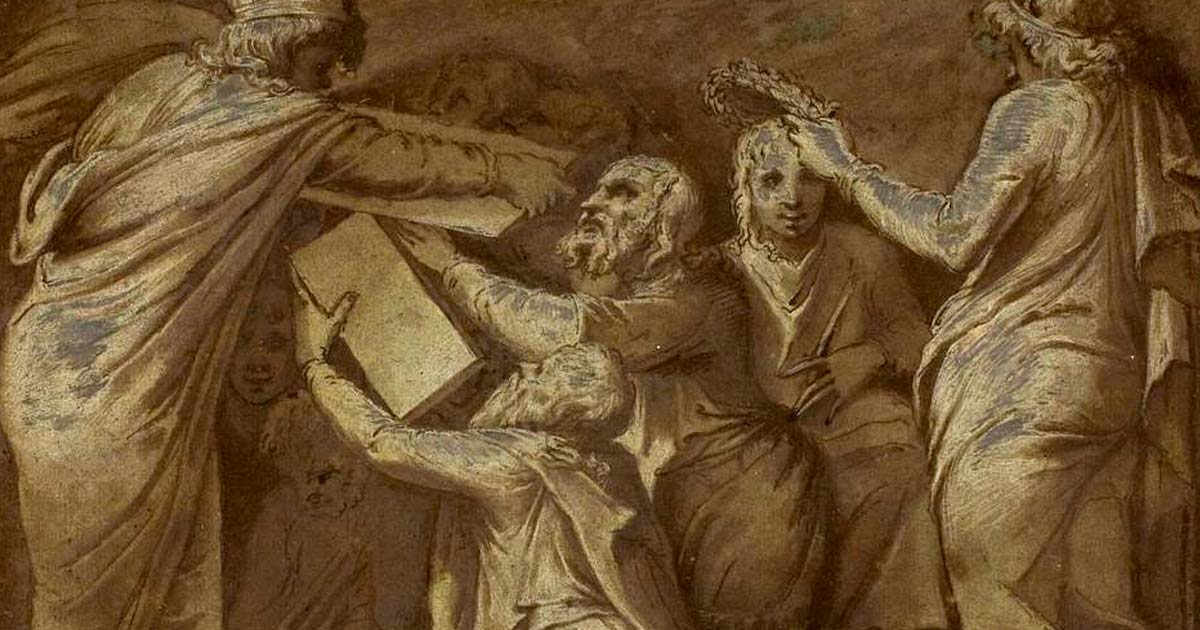Numa Pompilius: The Legendary Second King of Rome
Every great kingdom and empire have to start somewhere, right? One of history’s greatest realms was the Roman Empire, but even so, it began as a struggling city-state, supposedly led by kings. But who were its very first kings? Many of them are fictionalized heroes, whose historicity was never truly confirmed. One of these was Numa Pompilius, the second king of Rome, succeeding its very founder, Romulus. Numa is considered to be a legendary figure in Roman history, and his reign is often referred to as a "golden age" of early Rome. During his time as king, Numa Pompilius allegedly implemented a series of religious and social reforms that would shape Roman society for centuries to come.
Numa Pompilius Follows in the Footsteps of the Founder of Rome
According to the writings of Roman historians that lived centuries after Numa Pompilius, he was born in the Sabine town of Cures, located about 50 miles (80 km) northeast of Rome. Numa was the son of Pomponius, a wealthy Sabine nobleman. The Sabines were a prominent Italic tribe, who later got assimilated by the Latin Romans. Ancient legends tell us that Numa Pompilius was chosen to be the successor of Romulus by the gods themselves. After the death of the city’s founder, the Romans were left without a king, and they prayed to the gods for guidance. The god Jupiter appeared to them in a dream and instructed them to go to the town of Cures and select Numa Pompilius as their new king.
Still, that is the legend, and the true account of events is not certain. Later historians state that during the interregnum period after the death of Romulus, many factions of the senate bickered amongst themselves. In the end, a compromise was reached, through which Numa Pompilius was chosen as the new king. He was initially reluctant to accept the offer of kingship, but he eventually relented and accepted the throne. He was a wise and just ruler, we are told, and who was known for his piety and devotion to the gods. According to tradition, he is said to have consulted with the goddess Egeria, who gave him advice on matters of state.

Detail from the painting, "Nymph Egeria dictating to Numa Pompilius the laws of Rome " (Poniol/CC BY-SA 3.0)
According to historians such as Plutarch and Livy, Numa was a very strict man, devoting his life to piety and harsh discipline. These qualities he seemingly transferred to his reign as well, becoming a wise legislator and devoted to religious matters. During his reign, Numa Pompilius implemented a series of crucial religious and social reforms. He established the office of Pontifex Maximus, which was responsible for overseeing the religious rituals and ceremonies of Rome. He also created a calendar based on the cycles of the moon, which was divided into 12 months. This calendar would later be replaced by the Julian calendar, but even so it remained in use for many centuries.
- Ancient Vanishings: The mysterious and supernatural disappearance of Romulus
- Keepers of the Sacred Flame from Ancient Rome to India
A Just King with a Sense of Duty
That is not the end of his important reforms. Numa Pompilius is also credited with the creation of the Roman legal system. He is said to have written the laws of Rome, which were based on the principles of equity and justice. What is more, he also established the concept of private property and encouraged the Romans to live peaceful and virtuous lives. Noble and with a strong sense of justice, Numa was quick to disband the 300-strong personal bodyguard that kept Romulus safe. This was seen as a sign of humility and an equation with the common folk, but others thought that it was a political move, as the royal bodyguard was becoming a threat.
A deeply religious man, Numa Pompilius believed that the gods played a vital role in the affairs of common men. His devotion to the gods set the tone for Roman religion for centuries to come. He was revered as a saint by the Roman people, and his legacy was celebrated in numerous festivals and ceremonies. According to legend, he was chosen to be king only after Jupiter was consulted, and the omens shown were good.

Numa Pompilius, king of Rome, compels the people to observe religious ordinances. (Public Domain)
He also erected new temples in Rome, and established new religious cults. Many new social aspects appeared, and there was a greater emphasis on peace within the boundaries of Rome. According to many scholars, Numa Pompilius - who is likely a historic figure - is considered to be one of the greatest kings of Rome. His reign was marked by lasting peace and prosperity, and he is credited with laying the foundation for the future greatness of Rome. His reforms helped to create a stable and balanced society, which would enable Rome to become a dominant power in the Mediterranean world.
- Roman Law and Its Lasting Influence On the Legal System of Europe
- Ruthless Rulers Did Dark Deeds Right From the Founding of Rome
Fact or Fiction? We May Never Know
Still, history is not certain of the authenticity of Numa Pompilius. It is possible that writers such as Plutarch, Dio, or Livy greatly exaggerated the reign of this ancient king, showing him in extremely good light in order to emphasize the glory of early Rome. Still, there are many elements to the narrative that are credible and have historic roots, indicating that the second King of Rome was indeed successful and raised the power of the city to even greater levels.
Historical narrative states that this king reigned for roughly 43 years, and died from old age, being around 81-years-old. In the end, Numa remained remembered predominantly for his wise and just rule. He set an example for future Roman rulers to follow. His legacy continues to be celebrated in Rome to this very day, and he remains a beloved figure in Roman mythology and folklore.
Top image: Numa Pompilius giving the Laws to the Romans. Source: Public Domain
References
Boatwright, M. T. 2012. The Romans: From Village to Empire. Oxford University Press.De Florian, J.P.
1850. Numa Pompilius: Second King of Rome. Ticknor, Reed & Fields.
Zoch, P. A. 2012. Ancient Rome: An Introductory History. University of Oklahoma Press.

















